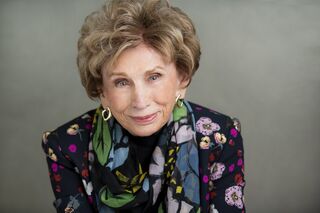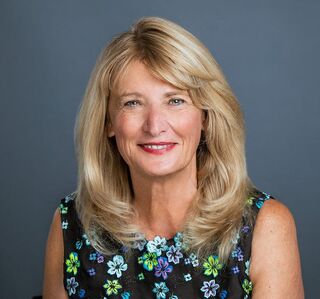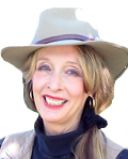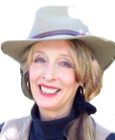Fear
How to Escape From the Prison of Fear
Powerful insights from a psychologist and Holocaust survivor.
Posted July 21, 2022 Reviewed by Jessica Schrader
Key points
- Holocaust survivor and psychologist Dr. Edith Eger explains how to free ourselves from the prison of fear and limiting beliefs.
- People can be freed from the prison of self-neglect by practicing savoring.
- We can free ourselves from fear by practicing kindness.

In the spring of 1944, Edith Eger was a teenage gymnast in Hungary. Then she and her family were imprisoned in Auschwitz. Yet she says, “I'm here to tell you that the worst prison is not the one that Nazis put me in. The worst prison is the one I built for myself” (2022, p. 3).
After the war, Edith Eger came to America and later earned her Ph.D. in psychology. Realizing how our beliefs can imprison us, she’s helping people free themselves from their personal prisons by recognizing their power to choose.
Her approach parallels that of Viktor Frankl, who said that everything can be taken from us “but one thing: the last of the human freedoms—to choose one’s attitude in any given set of circumstances” (1984, p, 86). Both of them recognized our transformational power to choose.
Eger discovered Frankl’s work when a classmate in her university history class handed her a copy of Man's Search for Meaning. She began reading the book that night until 3 a.m., then wrote an article about Viktor Frankl, which someone sent to him. He responded with “a beautiful letter, inviting me to meet him in San Diego, at the International University.” Frankl became her mentor, she says, and “I feel very, very wonderful about having him as my mentor and my colleague” (2022, personal communication). In 2017, she published her memoir, The Choice, after Stanford psychologist Philip Zimbardo, Ph.D., called her, saying that Holocaust memoirs had all been written by men and they needed a female voice.
In The Choice (2017), Eger describes how when her family arrived at the concentration camp, her parents were immediately sent to the gas chamber. She felt alone and abandoned in Auschwitz, continually asking herself, “Does anyone know that I’m here?” Yet she persevered, despite her ever-present fear and uncertainty. “I didn't know what was going to happen,” she says. “When we took a shower, I didn't know if water or gas was going to come out. It was very, very important to really recognize that they could put you in a gas chamber any minute. But they could never hurt my spirit.”
Today, as a practicing psychologist in San Diego, Dr. Eger helps her clients recognize “that we have the inner strength, not to react, but to respond.” She says, “In my experience, victims ask ‘Why me?’ and survivors ask ‘What now?’” (2022, p. 11). With a mixture of personal examples and powerful questions, she helps people stop focusing on the past and ask what they can do—now.
In her new book, The Gift (2022), Eger helps people identify their own inner prisons and offers strategies for breaking free. She’s also reaching out with this message in her new online course, titled Unlocking Your Potential.
To free ourselves from the inner prison of victimhood and self-neglect, Eger recommends what psychologists call savoring (Hurley & Kwon, 2013). She says, “Anything we practice, we become better at.” Some examples Eger cites are to “spend at least five minutes every day savoring pleasant sensations: the first sip of coffee in the morning, the feel of warm sun on your skin or a hug from someone you love, the sound of laughter or rain on the roof, the smell of baking bread. Take time to notice and experience joy” (2022, p. 69).
Sometimes, Eger says, it takes only one question to get us out of victimhood: “Is it good for me? Is it good for me to sleep with a married man? Is it good for me to eat a piece of chocolate cake? ... Is it good for me to go dancing? To help a friend? Does it deplete me or empower me?” (2022, p. 15).
Eger points out how we often limit ourselves to the scripts our parents and culture have given us, accepting limitations of sexism, ageism, and more. But “you can rewrite your script,” she says. When she was a teacher, her supervisor encouraged her to get a Ph.D. She was 40 then. She told him, “It's impossible,” because by the time she finished, she’d be in her 50s. He answered, “You will be 50 anyway.” Smiling, she says, “I think that was the wisest thing. Yes, I did get a Ph.D. and continue my schooling.” Today, in her 90s, she’s seeing clients, writing books, exploring new ventures, and is a beautiful role model to all of us seeking new frontiers at midlife and beyond.
In the wake of the COVID pandemic, many of us have been living with chronic uncertainty and confusion. I asked Dr. Eger and her daughter, Dr. Marianne Engle, also a psychologist, how we can deal with our fears and uncertainty.

“We're asked this question a lot,” Engle says, “and one of the things that's important for people to know is that it's OK to feel frightened, it's OK to be worried. But what's not good for them is to let those fears and worries occupy too much of their time.” She recommends taking five minutes to write down our fears, to express what’s troubling us, and then put that list away. Next, she says, to “make your list of the things you want to do with your day to make it a good day. My mother loves to talk about being satisfied. If you are satisfied at the end of the day, you will have a very different experience” (2022, personal communication).
Because, as Eger says, “fear and love do not coexist,” she recommends kindness on all levels to overcome fear.
- Kindness to ourselves: This “is very important,” she says. “When you get up in the morning and look in the mirror, say something like, 'I love me,' because self-love is self-care, it’s not narcissistic.”
- Kindness to others: When she and her sister, Magda, arrived at Auschwitz, their heads were shaved and they stood naked in the shower. Her sister asked, “How do I look?” And instead of telling her how she looked in her nakedness, Edie said, “Magda, you have such beautiful eyes. And I didn't see it when you had your hair all over the place.” Today, Eger says, “I think this would be good for us to point out what's good and what is right.”
- Appreciating kindness from others: Eger reflects back on a day in April 1945 when she and Magda were prisoners in a German village. They were told if they left the premises they’d be shot, but when Magda told her she was so hungry that if she didn’t get food she would die, Edie, the gymnast, jumped the fence to pick carrots from the garden next door. Shots rang out. But she survived. The next morning a German guard asked who broke the rules and she told him. He gave her a little loaf of bread and said, “You must have been really hungry to do what you did.” Remembering his kindness, Eger says, gratefully, “I wish I could meet that man today.”
- Kind speech. In what sounds like the Buddhist concept of “right speech,” Eger tells people, “If you want to say something, ask yourself, Is it important? Is it necessary? And most of all, is it kind? If it's not kind, don't say it.” We could certainly use more of this kindness in our world today.
For many of us, during over two years of COVID challenges, the worst experience is feeling confused and isolated, which can be really frightening. The opposite of this painful isolation is connection, kindness, and love, which make us realize we're not alone, that we're all connected (Fredrickson, 2013). And that's what Eger gives to her clients and her readers. That's what that guard gave to her so many years ago, along with that little loaf of bread. That connection, that human connection, is what we all need in order to be healthy and whole.
To learn more about Dr. Eger and her work, you can check out her books, her new foundation, her Facebook page, and her new online course, Unlocking Your Potential.
_____________________________________
This post is for informational purposes and should not substitute for psychotherapy with a qualified professional.
© Diane Dreher, Ph.D. 2022. All rights reserved.
References
Eger, E. (2022, June 11). Personal communication. Unless otherwise cited, all quotes from Dr. Eger are from this interview.
Eger, E. (2020/2022). The gift: 14 lessons to save your life. New York, NY: Scribner.
Eger, E. (2017). The choice: Embrace the possible. New York, NY: Scribner.
Engle, M. (2022, June 11). Personal communication.
Frankl, V. E. (1984). Man’s search for meaning. New York, NY: Simon & Schuster. Originally published in 1946.
Fredrickson, B. (2013). Love 2.0: How our supreme emotion affects everything we feel, think, do, and become. New York, NY: Hudson Street Press.
Hurley, D. B., & Kwon, P. (2013). Savoring helps most when you have little: Interaction between savoring the moment and uplifts on positive affect and satisfaction with life. Journal of Happiness Studies, 14, 1261-1271




